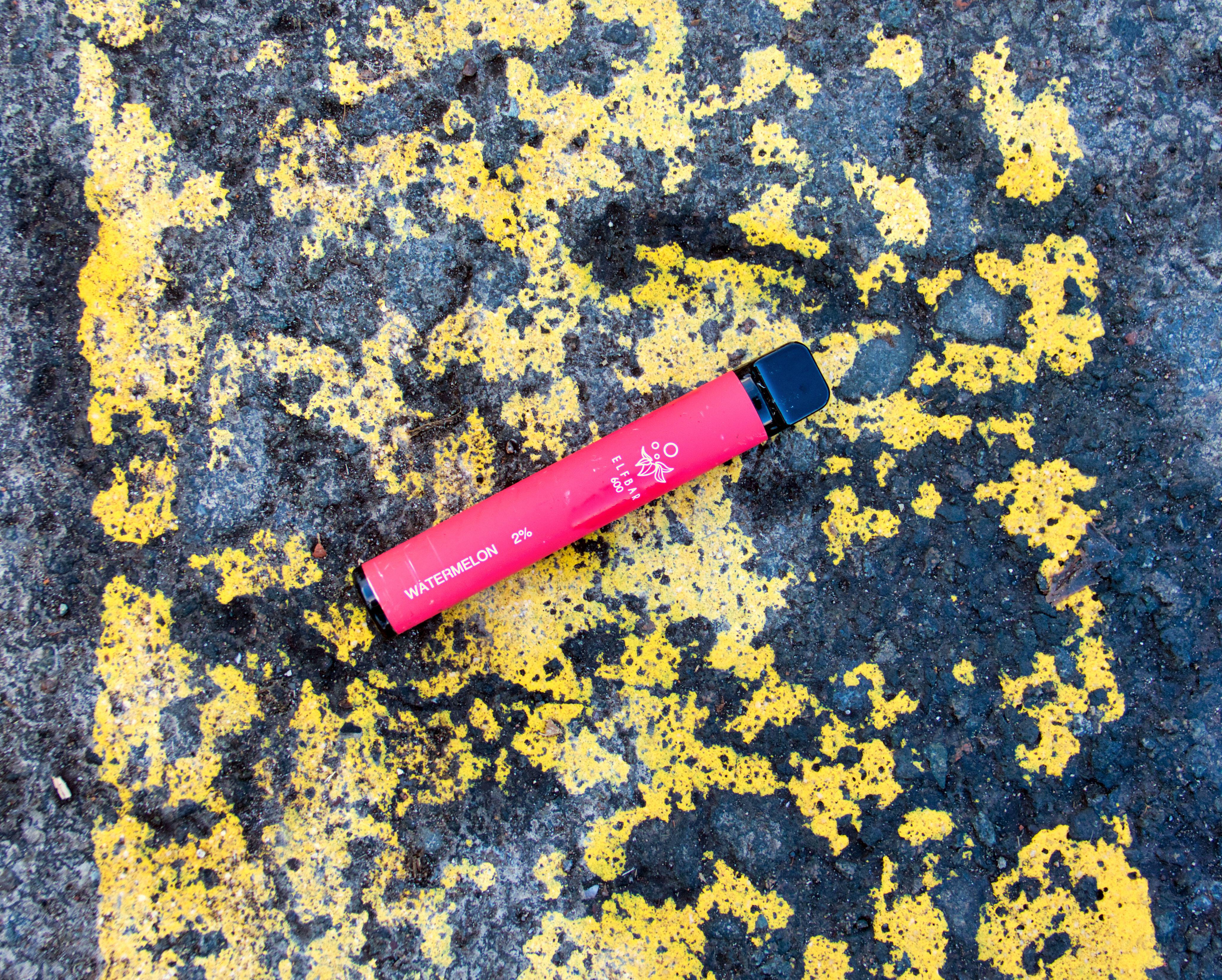Planet of the vapes: How e-cigarettes have become a favourite among Scotland's teens
Katy (not her real name) was in her final year of primary school when she first heard her friends talking about vapes, but she didn’t try one herself until her first year of high school. All the popular kids had started congregating in the toilets to use them and she felt obliged to give it a go. Now aged 13 and in her second year at a Renfrewshire secondary, Katy didn’t persevere after that first time, but many of her schoolmates did. Their social media pages are full of photos of them posing with Elf Bars and Lost Marys, their smiles filtered through blue raspberry and fizzy cherry hazes. Many are, Katy believes, now addicted.
“People vape in the toilets and PE changing rooms and I even saw someone doing it in the corridors going between classes once,” she says. “There’s a big issue because the school closes the toilets during class time and restricts access at break but some kids are also scared to go to the toilets due to groups hanging about there vaping. It starts off as fun but it’s 100 per cent addictive – there are kids at my school who talk about needing vape breaks.”
It is a scenario that is being replicated across the country. In its recent Health and Wellbeing Census, which surveys children from P5 through to S6, the Scottish Government found that by their second year of high school 4.3 per cent of children are vaping regularly, with the proportion rising to just over ten per cent by S4. Kids are far more likely to vape than to smoke or drink alcohol, more girls are regular vapers than boys (7.7 per cent versus 5.8 per cent), and while just under five per cent of youngsters in the least deprived parts of the country vape regularly, in the most deprived areas the proportion rises to close to eight per cent.
The numbers are, says Sheila Duffy, chief executive of anti-smoking campaign group ASH Scotland, highly concerning, especially as they chime with a UK-wide study carried out by YouGov on behalf of ASH last year. That found that between 2020 and 2022 the proportion of children who had tried vaping rose from 14 per cent to 16 per cent, while the number who vape on a regular basis was up from 4.1 per cent to 7 per cent. The uptick is thought to be almost entirely attributable to the meteoric rise of disposable vapes in the last couple of years.

“E-cigarettes were invented in the early 2000s by a Chinese pharmacist who wanted a substitute for cigarettes and we first spotted them in Scotland in 2007,” Duffy says. “Since then there have been about five generations of devices. The availability of bright neon coloured disposable e-cigarettes, with sweetie flavours and at very cheap prices, around £3, has driven demand for these potentially highly addictive products among young people who have not smoked. Displays are in your face when you walk into shops next to the sweets, ice-cream or points of sale, and these are a starter product for children because they are not as rough on the throat as tobacco, they don’t smell like tobacco and are easy to conceal. ”
When they were first introduced, e-cigarettes were supposed to be used to help smokers give up cigarettes and NHS Scotland continues to promote them as an aid to cessation. “Although most e-cigarettes contain nicotine, which is addictive, vaping carries less risk than smoking tobacco. Thus, it would be a good thing if smokers used them instead of tobacco,” its advice says. The NHS Inform website states: “If you use e-cigarettes as a complete replacement for smoking, you’ll almost certainly benefit your health.”
E-cigarettes were clearly never meant to be marketed to children – they can only legally be bought from the age of 18 – and while their original use was as a tobacco cessation aid there is an almost paradoxical concern that they are now being used by teenagers who have never smoked. Indeed, the ASH data shows that the numbers remain small, with the use of vapes being largely confined to either current or former smokers, but that some teenagers who have never experimented with cigarettes have experimented with vapes.
For Linda Bauld, professor of public health at the University of Edinburgh, this is a worrying but not entirely unsurprising trend. Having chaired several committees in England and Scotland on tobacco products and e-cigarettes, she says it was always assumed that some people would bypass cigarettes and go straight to vapes.
“It was always envisioned and feared by those of us involved in the trials of vaping for smoking cessation that [people would start vaping without ever having smoked] and it’s started to happen,” Bauld says. “I was chair of a committee when these came on the market and we were always concerned about this – they are brilliant for smokers but this is the downside. We always knew that this would be a tussle.”
If the tussle was being experienced just by adults it would be bad enough, but the fact that the marketing of disposable vapes appears to be so targeted at children is causing such concern that Ayr MSP Siobhian Brown has raised the matter in parliament and is attempting to bring forward a bill that would see the child-friendly flavours banned. She first became aware of vapes two years ago when her teenage children started talking about them, but has since seen the way they have flooded local shops and became particularly concerned when her daughter told her that, when going on a night out, she and her friends will buy vapes that colour co-ordinate with their clothes.
“I got alarmed when I went to my local supermarket and all of a sudden it was full of colourful vapes – I’ve even seen them in the health aisle,” she says. “I know how hard it is to give up smoking and if you want to give up and vaping is the way for you, great, I’m all for it. What I’m really worried about is that these products are being targeted at our children. I had an S5 boy come to see me because he was writing an essay on vaping and he thought 75 per cent of his classmates were doing it. Around the world they have started to take action – flavoured vapes are banned in countries like Austria, Hungary, Denmark, the Netherlands – and I’m calling for Scotland to do that too.”
Brown, who received cross-party support for her February debate on the issue, plans to launch a public consultation on vaping next month with the aim of lodging a bill further down the line. It is the latest in a series of moves designed to limit their prevalence. Dundee City Council has called for a total ban due to the risk disposables pose to the planet – they cannot be easily recycled and are causing a widespread littering problem. The Scottish Greens have taken up the cause and are backing a Scotland-wide ban, while the Scottish Government has consulted on whether the marketing of vapes should be restricted. In its response, the government said last year that vapes should be used purely as a smoking cessation aid, although it is not clear at this point when or if any legislation will be forthcoming.

For Duffy, restrictions and bans cannot come quickly enough, given the health implications associated with vaping. Though Bauld says there is not yet enough longitudinal data to carry out conclusive studies on the potential damage vapes do, she notes that they contain carcinogens and “as they are not at zero we will see harms”. It has also been proven in research that there is a gateway effect between vaping and smoking, she adds. Duffy, meanwhile, points to research published in Australia last year that found strong evidence of that gateway effect and conclusive evidence that e-cigarettes can cause respiratory disease as well as burns, poisoning and seizures.
Cracking down on vapes won’t stop the genuine market e-cigarettes were supposedly created to serve, but it is hoped it would go some way towards protecting the health of Scotland’s youth. “The vast majority of adults know about e-cigarettes so they can still go and ask for them,” Duffy says. “They just don’t need to be in your face next to the sweeties and ice-cream.”
Holyrood Newsletters
Holyrood provides comprehensive coverage of Scottish politics, offering award-winning reporting and analysis: Subscribe